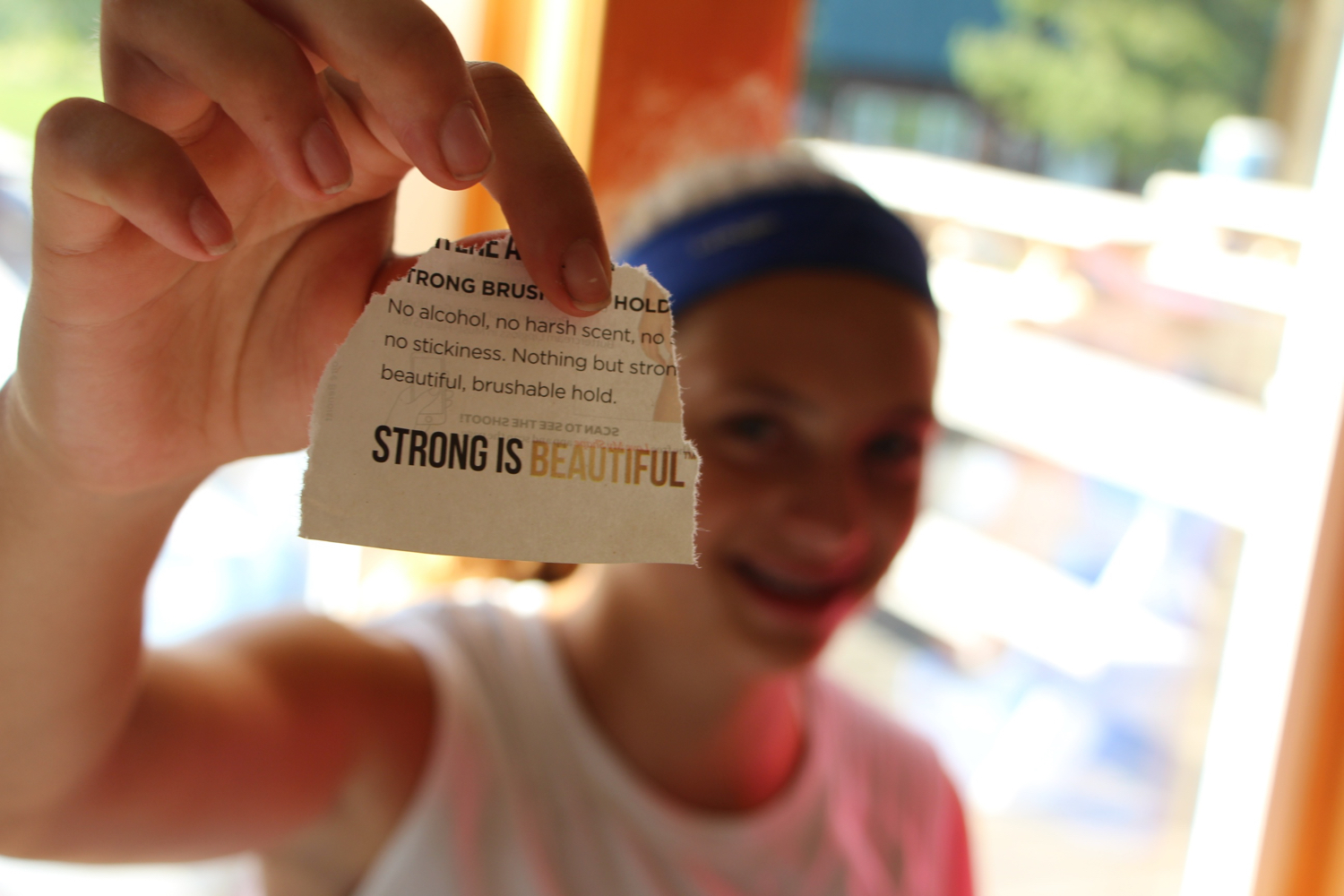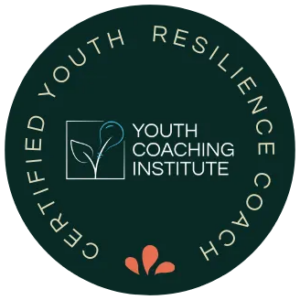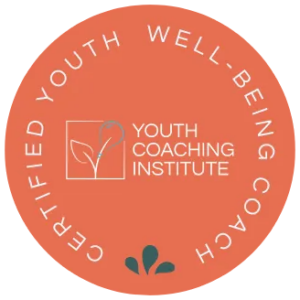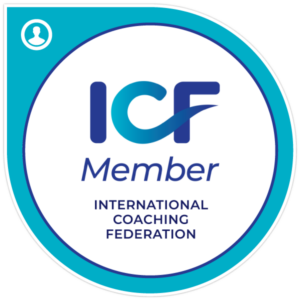It’s all about her!
Each coaching session is client-led,
meaning each girl sets her own agenda.
The Coaching Space

A Space Focused on You
Imagine a quiet space where you can let your guard down. A place where you feel heard and not judged. A place where the focus is always on what matters most to you. A place where you can really tune into your thoughts and feelings, to build a deeper understanding of what you want, why you want it, and how to make it happen.

Clarity. Confidence. Courage.
The coaching space is about becoming more connected to who you are, recognizing your potential, and learning to make intentional choices. Whether you’re aiming for personal growth, meaningful connections, academic success, or athletic performance, mindset coaching helps you tap into your unique strengths and build the mental and emotional skills to navigate the challenges you’re facing today, and in the process, build a confident and courageous mindset for the future.

The Key Elements
- Explore & Reflect:
Take the time to understand yourself, your strengths, values and goals. - Gain Clarity:
Figure out what you want, why you want it, and set a clear path forward. - Build Confidence:
Grow the courage to make choices that feel right to you. - Strengthen Resilience:
Learn to bounce back when life knocks you down. - Take Action:
Take small steps forward, celebrate the little wins, learn as you go. - Circle Back Around:
Then rinse and repeat!
How it Works

It’s all about YOU
You are the expert in YOU, so you take the lead. You decide on the focus for each session. You decide what goals you would like to pursue. Whether it’s overcoming challenges in school or sports, building self-confidence, managing anxiety, or simply a desire to tap into your full potential, we’ll dig deep into the things that matter most to you. Then work through the steps that will propel you forward.
Each coaching session consists of the following steps
Step One
You decide on a topic. You set a goal for the session*.
* The Confidence & Courage Packages have predetermined topics, but the rest of the steps remain the same.
Step Two
We go exploring! Here is where I ask you questions to help you expand your thinking. You’ll develop more self-awareness, understand your inner strengths, and figure out the most effective solutions for you.
Step Three
We reflect on the insights.
Step Four
You choose a path forward and strategize your next steps.
Step Five
You make the commitment to take action. It’s time to get out there and do your thing!
My Coaching Approach
INSPIRING THE NEXT GENERATION OF WOMEN
My Vision
To inspire a generation of self-aware, resilient young women who understand their worth, trust their abilities, and courageously shape their own futures.
What Matters Most
I create a space for self-discovery, where girls are encouraged to explore their thoughts, feelings, motivations, and needs. Each coaching session is client-led, meaning each girl sets her own agenda, ensuring that the focus is always on what matters most to her.
Self-Awareness is Key
Building self-awareness is central to my approach. I believe it’s the key to making positive and powerful changes. Through thoughtful questioning, reflective listening, and guided inquiries, I help girls better understand their internal world, which enables them to make informed decisions and take empowered steps forward. It is a process designed to foster intrinsic motivation and self-efficacy.
Strengths-Based. Solution-Focused. Action-Oriented.
I actively support each girl in developing her own solutions and help her identify areas where she has the power to take meaningful action. By focusing on her strengths and resourcefulness, I encourage each girl to leverage her own capabilities to create positive change in her life.
Knowledge-Based Coaching
I love education and sharing information. When appropriate, I integrate knowledge-based coaching, offering science-backed insights on topics like emotions, thinking traps, habit loops, the stress curve, and communication styles, to further support her growth.
She Knows Herself Best
With a calm, curious mind and a compassionate heart, I listen with care, offering a space where girls feel valued, supported, and safe to be themselves. I honor each girl as the expert in her own life, believing that she knows herself best and is fully capable of creating the life she wants.



Coaching FAQ’s
What is Coaching?
The International Coaching Federation defines coaching as:
“Partnering with clients in a thought-provoking and creative process that inspires them to maximize their personal and professional potential.”
This definition highlights a few key principles of ICF-aligned coaching:
- Partnership: The coach and client are equal partners in the process, with the client leading the agenda and the coach serving as a guide or facilitator.
- Thought-Provoking and Creative Process: Coaching encourages clients to reflect deeply, think critically, and explore new perspectives to uncover creative solutions.
- Maximizing Potential: The ultimate goal is to help clients unlock their fullest potential—personally, academically, professionally, and holistically.
What is the difference between coaching and therapy?
Simply put… Therapy is about the past and Coaching is about the future.
Coaching and Therapy are different practices with different approaches. Generally speaking, therapy focuses on healing past wounds, whereas coaching is future-focused and action-oriented. However, coaches and therapists share a common goal – to enhance the well-being and support healthy outcomes for those they serve.
Some therapists are also coaches. Some coaches are also therapists. Deciding which is the best fit for your daughter depends on her needs and goals. Keep in mind, it’s possible a girl may work with both a therapist and a coach to address different needs and goals. It doesn’t have to be a question of one or the other. Here’s an overview of the primary differences:
Therapy
- The patient is struggling with dysfunction related to psychological issues, concerns, or symptoms that interfere with daily tasks.
- The patient needs help coping, alleviating pain, or distress related to trauma, disorders, or illness.
- The patient wants to work through the problems and get back to normalcy.
- The patient is looking for a mental health professional to help them overcome and live well again.
Coaching
- The client is functional and does fine with daily tasks. The client is considered psychologically normal and copes well enough.
- The client wants to be better, grow, or set and achieve higher goals.
- The client wants to improve performance, relationships, or life satisfaction.
- The client is looking for a success partner to help facilitate the next level of growth, advancement, or change.
What qualifications do you have?
Excellent question!
I’m a professionally certified Youth Well-Being & Resilience Coach through the Youth Coaching Institute, a program recognized and accredited by the International Coaching Federation (ICF)—the gold standard in professional coaching. My training focuses on evidence-based, developmentally appropriate strategies to help teens and young adults build emotional strength, self-awareness, and essential life skills.
Drawing on over 30 years of experience working with young athletes through ELITEAM—a sports performance company I co-own and run with my husband—and my own journey as a competitive ski racer, I specialize in teaching mental skills that build clarity, confidence, and courage.
At ELITEAM, we teach the fundamentals of Sports Physiology, Psychology, and Nutrition through a dynamic mix of hands-on challenges and interactive workshops. Whether we’re powering through obstacle courses or diving into mindset strategies, every activity is designed to push limits, spark learning, and strengthen both body and mind. We keep it simple, age-appropriate—and most of all, FUN! It’s all about planting seeds that grow into grit, resilience, and lasting confidence.
This unique combination of formal training, lived experience, and creative programming allows me to form meaningful connections with young people and guide them in developing the tools they need to thrive—both now and in the future.
Is coaching only for fixing problems?
Definitely not!
Coaching is not solely for addressing problems or challenges. While coaching can help people navigate difficult situations and find solutions, its scope goes far beyond problem-solving. Coaching is an effective tool for personal development, allowing clients to tap into their potential, set meaningful goals, and improve their overall well-being. It’s about fostering growth and self-discovery, not just fixing what’s broken.
As a parent, how do I know if coaching is a good fit for my daughter?
Coaching is a powerful tool for growth and development. It can be highly effective for people who want to make positive changes in their life. Overall, it is a very future-focused and action-oriented process… we are talking for the sake of DOING!
Start by asking yourself these questions.
- Does my daughter WANT to make changes?
- Is she READY to make changes?
- Is she WILLING to put in the effort?
Coaching is most effective when a client is ready, willing, and able to do the work.
What mental and emotional skills are developed through coaching?
This is the best part!
Coaching isn’t just about solving problems—it’s about building a toolbox your daughter can carry with her for life. Each session is designed to spark self-discovery, encourage critical thinking, and create a safe space to take brave action. With every small win, confidence grows. With every challenge faced, resilience builds. With every step forward, clarity sharpens.
The benefits go way beyond the session itself. Your daughter will begin to understand herself more deeply and make empowered decisions that reflect her values and goals.
These mental skills naturally unfold during every session:
• Self-Awareness – Recognizing strengths, values, and what truly matters
• Self-Confidence – Growing it session by session, action by action
• Goal Setting – Mapping out meaningful, doable steps forward
• Resilience – Navigating life’s roadblocks with strength and flexibility
• Time Management – Learning to prioritize and plan with purpose
• Decision-Making – Choosing the most effective path forward
• Self-Compassion – Giving yourself credit for what you’re doing well
What is your confidentiality policy?
As the client, your verbal communication and coaching records are strictly confidential between the coach and coachee except for (1) information you report to your coach about physical or sexual abuse (we are not mandatory reporters but feel obligated to report this to the Utah Department of Family and Protective Services or like service in your state of residence, (2) when you sign a release of information to have specific information shared with your physician or therapist, (3) when you provide information that informs your coach that you are in danger of harming yourself or others, and 4) when subpoenaed by the court.
As the parent of a minor, will I be kept up-to-date on my daughter’s progress?
Absolutely. I believe in supporting the growth of each young client and keeping parents in the loop in a way that respects the teen’s privacy and builds trust.
For minor clients, parents or guardians may request periodic summaries that provide an overview of coaching themes—such as self-awareness, emotional regulation, confidence, or communication skills. These updates can be shared via email, with the teen CC’d to promote transparency.
That said, the coaching space is designed to be a confidential and safe environment for your daughter to explore and grow. Specific details shared during sessions remain private unless they fall under one of the four exceptions outlined in the Confidentiality Policy (such as safety concerns).
What is the current state of youth mental health?
Many experts and organizations consider there to be a mental health crisis among youth. Over recent years, numerous studies and reports have highlighted rising rates of anxiety, depression, and other mental health challenges among young people. Here are some key points contributing to this assessment:
1. Increased Prevalence of Mental Health Issues
- Rates of anxiety and depression have risen significantly among teens and young adults in the past decade.
- The COVID-19 pandemic exacerbated feelings of isolation, stress, and uncertainty, further impacting youth mental health.
2. High Rates of Suicide and Self-Harm
- Suicide is one of the leading causes of death among young people aged 10–24.
- Reports of self-harming behaviors among youth have increased, particularly among girls.
3. Impact of Social Media
- Excessive use of social media has been linked to poor self-esteem, body image issues, and cyberbullying, all of which contribute to mental health struggles.
- Social comparison and the pressure to maintain a curated online presence amplify stress and anxiety.
4. Academic and Societal Pressures
- Increased academic demands, competition, and uncertainty about the future contribute to chronic stress in young people.
- Issues like climate change, social injustice, and economic uncertainty add to the mental health burden.
5. Stigma and Lack of Resources
- While awareness has improved, stigma around seeking help persists in many communities.
- There is often limited access to mental health resources, especially in underserved or rural areas.
Responses to the Crisis:
- Policymakers, educators, and healthcare providers are increasingly prioritizing youth mental health through initiatives like mental health education, increased access to counseling, and telehealth services.
- Grassroots efforts, nonprofits, and mental health advocates continue to promote awareness and reduce stigma.
Supporting youth with practical tools, emotional resilience, and mental health education can be a critical part of addressing this crisis.





